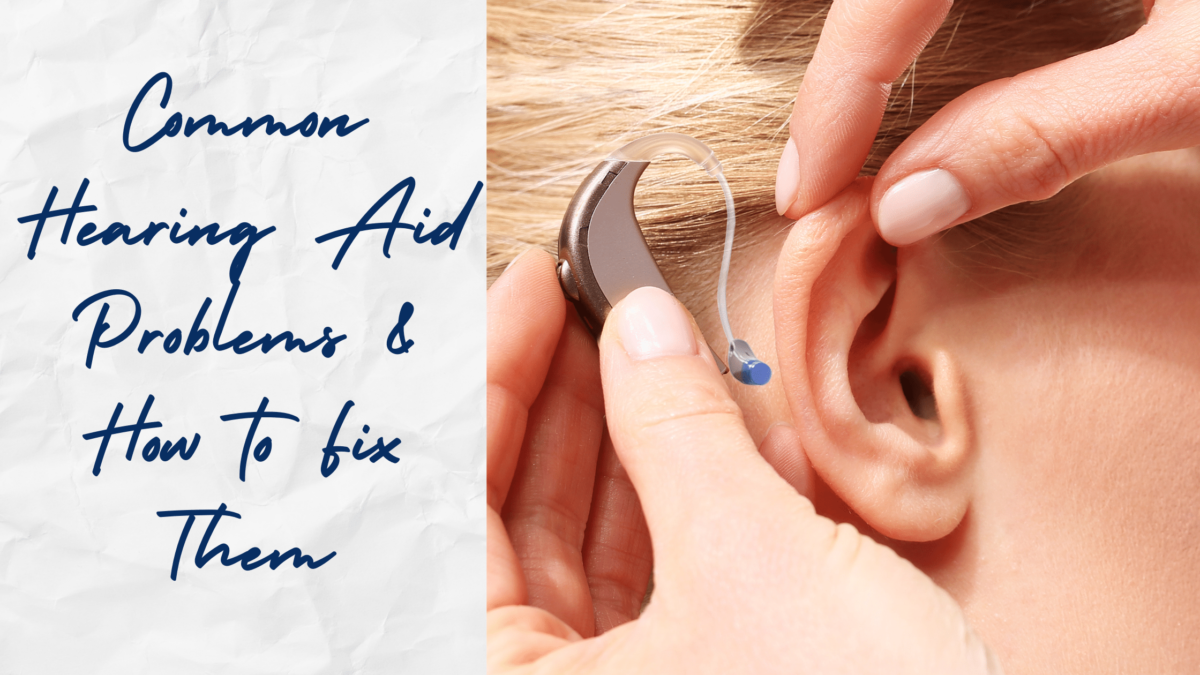When you make the investment in new hearing aids, you are not only investing in your hearing, but your emotional, physical and mental health for years to come. Even so getting used to new hearing aids can take a little bit of time, so it’s important to be patient!
Your brain will be dealing with a whole new set of challenges as you relearn how to hear sounds you may not have heard for years. In addition to this, it can take a while to get used to using this new technology. The newest hearing aids are advanced and complex machines that can take a moment to learn how to navigate.
The worst-case scenario is that a technical difficulty would persuade you from years of healthy hearing. Sometimes things can go wrong with your technology but if you know how to troubleshoot common problems you can usually deal with them quickly at home and focus on what is really important – hearing the people and sounds in your life.
Below are a few common issues that people have with hearing aids and strategies on how to fix them.
Your Hearing Aids are Too Quiet
One common issue people have with hearing aids is that they may seem too quiet even when you boost the volume up all of the way. This is most certainly a problem with the hearing aid but with a little detective work you can usually solve the problem.
First, examine the hearing aid searching for cracks, moisture or dirt that could obstruct your hearing. If you find a buildup of dirt or earwax, clean and dry it with a soft dry cloth. For more impacted instances a soft toothpick can be used to clear it away carefully. If cracks are present this is an issue that we can help you with. Contact a professional to help you get your hearing aids sounding loud and clear again.
If no blockages or damage is found, then look at the volume controls or scroll through different listening settings on your hearing aid. Many hearing aids these days can be controlled by a smartphone app. Sometimes it could just be a setting that is malfunctioning or not set correctly. If this doesn’t fix the issue it is time to contact a professional.
Fuzzy and Distorted Sound
If your hearing aid sounds distorted and your volume is just fine there is no need to panic. It could be an easy fix you can do at home. Often the battery is running out of juice and needs to be replaced. This happens with replaceable and rechargeable batteries as they become depleted. If it is not the battery’s energy it could also be an issue with the battery connections. Open the battery door and check for corrosion or rust due to exposure to moisture. If this is the case, remove the battery and clean the connectors with rubbing alcohol. This is a safe and effective way to clean your connectors without leaving behind more moisture or residue. After the corrosion is cleared your hearing aids should sound clear again.
Your Hearing Aids Don’t Turn on
If you use hearing aids with traditional batteries, replace your batteries with fresh ones and try to turn your aids on. If this doesn’t work, contact us for repairs.
If you use rechargeable hearing aids, try plugging your charging station into a different outlet and see if that helps. If this doesn’t work, contact us. It could be a problem with the charging station or the hearing aids themselves, and we can help you.
Your Hearing Aids are Visibly Broken
If you see cracks in your devices, don’t try to glue them or tape them! This could cause further damage and could affect warranty terms. Contact us immediately for repairs.
Regular Maintenance and Care
Hearing aids are reliable and trustworthy, if you give them the care they need. Remove them every night and store them in a safe, dry place. Avoid keeping them in the washroom, where moisture changes can affect the electronic components.
Be sure to give your hearing aids a weekly cleaning based on instructions for your specific models.

